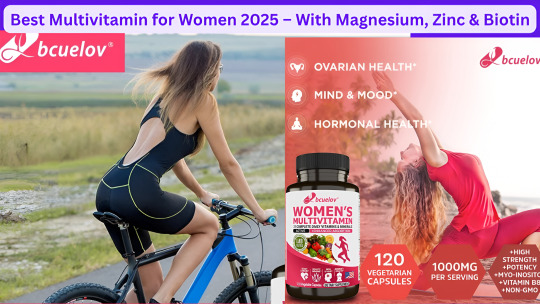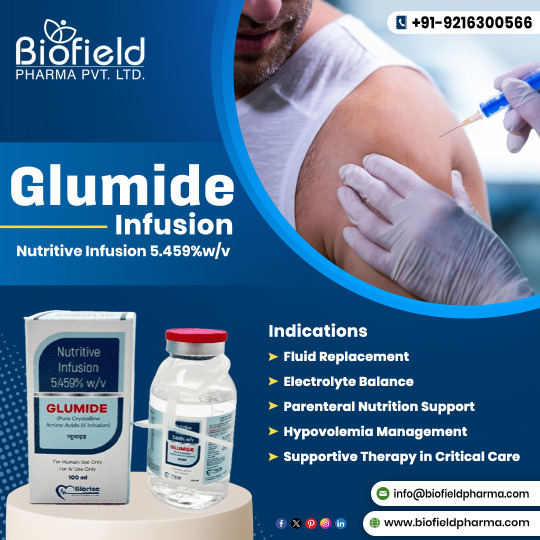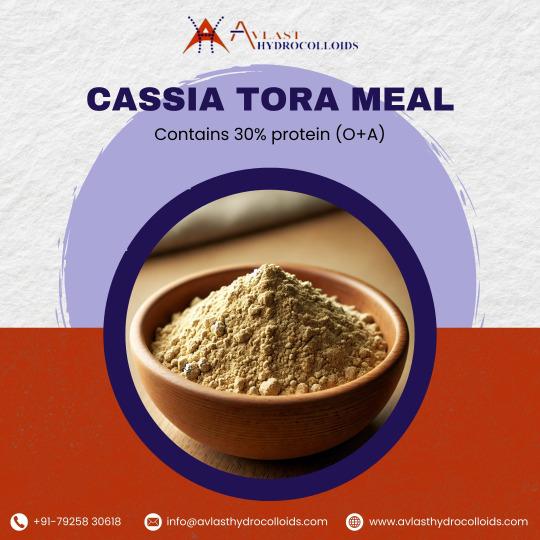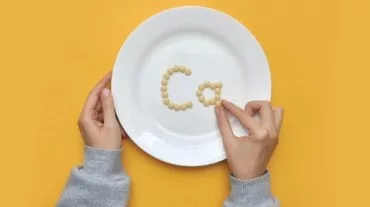#essentialnutrients
Explore tagged Tumblr posts
Text

Best Multivitamin for Women 2025 – With Magnesium, Zinc & Biotin
Introduction: Best Multivitamin for Women 2025
Why Women Need Multivitamins
Various changes occur in the bodies of women. These changes are related to nutrition demands between menstruation, pregnancy and menopause. Most women do not receive all their vitamins and minerals through food only. A multivitamin can assist there. In our present review, we examine one of the most famous women supplements manufactured by Bcuelov. It gets good ratings (5.0 based on 30 reviews) and good sales (109 units sold).
What Is This Multivitamin Supplement?
It is a supplement that is prescribed daily and specifically to women. It is a USA made product by Bcuelov. Every bottle contains 30, 60, or 120 capsules, depending on you. It has an assortment of vitamins and minerals that can benefit your entire body when encompassed in the pills. The product is non-toxic, vegan, and contains no destructive chemicals. There is no yeast, sugar, dairy, soy, or nuts used in it, or preservatives.
Key Ingredients and Their Benefits: Best Multivitamin for Women 2025
1. Magnesium
Supports healthy muscles and nerves
Helps with sleep and mood
Reduces PMS symptoms
2. Biotin (Vitamin B7)
Helps grow strong hair and nails
Boosts skin health
Supports energy levels
3. Calcium
Strengthens bones and teeth
Prevents bone loss in older women
Supports heart and nerve function
4. Zinc
Supports the immune system
Helps heal wounds faster
Keeps your skin clear
5. Selenium
Acts as an antioxidant
Protects cells from damage
Supports thyroid health
These five ingredients work together to boost women’s health naturally.
#BestMultivitamin#WomenHealth#Multivitamins2025#MagnesiumBenefits#ZincForWomen#BiotinBeauty#HealthyLiving#VitaminsForWomen#WellnessJourney#NutritionalSupplements#WomenWellness#VitaminsAndMinerals#HealthyLifestyle#BeautyFromWithin#HolisticHealth#WomenNutrition#DailyVitamins#EssentialNutrients#VitaminsForSkin#StrongWomen#HealthGoals#EmpoweredWomen#Womensmultivitaminreview#Bcuelovsupplement#skinnailsvitamin#biotincalciumzinc#bestvitaminsforwomen#veganmultivitamin#USA-madesupplements
0 notes
Text
How Do Mineral Deficiencies Affect Your Mood, Sleep, and Energy?
Struggling with low energy, mood swings, or poor sleep? Your body may be signaling a mineral deficiency. Magnesium, zinc, and iron play a crucial role in emotional and physical well-being, yet many people unknowingly run low. Discover how the right nutrients can boost your mood, restore restful sleep, and improve daily vitality. Take control of your health today!

1 note
·
View note
Text
youtube
#BComplex#VitaminB#HealthSupplements#EnergyBoost#HealthyLiving#WellnessTips#BComplexBenefits#DailyVitamins#BoostYourEnergy#HealthyLifestyle#VitaminB12#BComplexForEnergy#ImmuneSupport#BrainHealth#NaturalWellness#VitaminsForLife#BetterHealth#NutritionalSupport#BComplexForYou#WellnessJourney#StayHealthy#EnergySupport#EssentialNutrients#Youtube
0 notes
Text
#AminoAcids#EssentialNutrients#HealthyBody#ProteinSynthesis#MuscleGrowth#BalancedDiet#HealthBenefits
0 notes
Text

Rich in omega-3 fatty acids, fibre, and essential nutrients, Flax Seeds are a powerhouse of health benefits. Available in whole, roasted, or milled forms, they add a nutty crunch to smoothies, baked goods, and more. A timeless superfood for a balanced and nutritious diet!
For more details, visit- https://www.neonaturalindustries.com/product/flax-seed/
#neonaturalindustries#flaxseeds#AncientSuperfood#modernnutrition#essentialnutrients#BalancedDiet#nutritiousdiet
0 notes
Text

Fuel Your Vision with the Promigza Powder a Powerful blend of Protein, Vitamins, Minerals & DHA! 👁️💪✨
For More Info:
Call at: +91-9034803607
Email us: [email protected]
#HealthyEyes#EyerisVisionCare#HealthyVision#EyeCareEssentials#NutritionForEyes#EyeHealthMatters#BetterVision#EssentialNutrients#VitaminsAndMinerals
0 notes
Text
✨ Essential Vitamins & Minerals Guide 2025 ✨
Did you know? Every vitamin and mineral plays a unique role in keeping your body healthy. Here’s a quick breakdown of their key benefits:
#vitamins#minerals#essentialnutrients#health science#nutrients#health tips#fitfam#holistichealth#healthyliving#nutritiontips#wellnessjourney#daily health tips#preventivecare
1 note
·
View note
Text

"Essential Nutrients for Optimal Recovery!"
Get the excellent quality Glumide Infusion from Biofield Pharma
For More Info:
Email: [email protected]
Phone: +91-9216300566
#NutritiveInfusion#IVNutrition#ParenteralNutrition#MedicalInfusion#IVTherapy#EssentialNutrients#IVSupport#PatientCare#HealthcareInnovation#TotalParenteralNutrition
0 notes
Text
Proper nutrition for dogs includes proteins, carbohydrates, fibre, vitamins, minerals, and water, essential for maintaining overall health and function.
#nutrition#science#learning#essentialnutrients#dogfood#ablogforallthingsdog#dogstandard#dogsoftheinternet#dog#doglover#dogcare
0 notes
Text

Boost your well-being with Kaloni Oil! Packed with antioxidants & essential nutrients, it supports immunity, digestion, hair growth, & skin health. 💪
✅ Promotes hair & scalp health
✅ Supports immune & digestive systems
✅ Nourishes skin & fights inflammation
Use it for massage, hair care, or as a dietary supplement!
Read more at - https://www.guargum.co.in/blogs/kalonji-oil-health-benefits-applications
#AbdullabhaiAbdulKader#kalonjioil#HealthBenefits#NaturalWellness#HairCare#SkinCare#blackseedoil#blackseedoilbenefits#essentialnutrients
0 notes
Text
Learn simple ways to get more iodine in your diet. From foods to supplements, find the best options for you. Start your journey now!
#Iodine#Diet#Nutrition#HealthyEating#ThyroidHealth#Seafood#IodizedSalt#Kelp#HealthTips#EssentialNutrients#weightlossjourney#cleaneating#wellness#guthealth#healthylifestyle#healthyliving#youtube#wellnessjourney
0 notes
Text
Are You Missing Essential Nutrients? The Shocking Truth About Deficiencies and How to Address Them

Essential nutrients are the building blocks of a healthy body and mind. They include vitamins, minerals, and other compounds that our bodies need to function properly. Without them, we risk facing a range of health problems that can significantly affect our quality of life. Despite their importance, studies have shown that up to 90% of people are not getting enough of certain vital nutrients. This can lead to fatigue, low mood, digestive issues, and even chronic diseases such as heart disease and diabetes.
Why Nutrient Deficiencies Go Unnoticed
One of the most concerning aspects of nutrient deficiencies is how often they go unnoticed. Many of us dismiss symptoms like tiredness, irritability, or occasional aches and pains as normal or unavoidable parts of life. But these can be red flags indicating that our bodies are missing something essential. Over time, undiagnosed deficiencies can contribute to more severe health conditions, making it crucial to recognize and address them early.
Common Nutrient Deficiencies and Their Impact
Here are some of the most common nutrient deficiencies, along with their effects:
1. Vitamin D
Known as the sunshine vitamin, vitamin D is crucial for bone health, immune function, and mood regulation. A deficiency can result in osteoporosis, fatigue, and depression. Those living in areas with limited sunlight or who spend most of their time indoors are especially at risk.
2. Omega-3 Fatty Acids
These healthy fats are vital for heart health, brain function, and reducing inflammation. However, most diets lack sufficient omega-3s, leading to increased risks of heart disease, anxiety, and cognitive decline.
3. Magnesium
This essential mineral supports energy production, nerve health, and muscle relaxation. Yet, up to 80% of people are deficient in magnesium, which can cause muscle cramps, fatigue, and heightened stress levels.
4. Probiotics
Probiotics are beneficial bacteria that support gut health and immunity. A lack of these can result in bloating, digestive problems, and even mood disturbances, as gut health is closely linked to mental wellbeing.
How to Identify and Address Deficiencies
To determine whether you might have a nutrient deficiency, start by evaluating your diet and lifestyle. Are you eating a variety of nutrient-dense foods, such as fruits, vegetables, whole grains, and lean proteins? Are you staying active, getting enough sleep, and managing stress effectively?
If you’re unsure, consulting a healthcare professional or registered dietitian can be a valuable step. They can help identify deficiencies through dietary analysis or blood tests and recommend targeted strategies to address them. In addition to improving your diet, taking high-quality supplements can help fill nutritional gaps and restore balance.
Empower Your Wellness Journey with Dapear
At Dapear, we’re dedicated to helping you achieve optimal health through premium nutrition. Our products—from collagen and biotin to plant protein, multivitamins, and fish oil—are designed to support your body’s essential needs and elevate your overall wellbeing. Explore our range of supplements at dapear.com and take the first step toward a healthier, more vibrant life.
Take Control of Your Health
Understanding and addressing nutrient deficiencies is a powerful way to reclaim your health and vitality. By taking proactive steps to ensure your body is getting the nutrients it needs, you can feel your best and reduce the risk of long-term health issues. Remember, your health is your greatest wealth—invest in it wisely.
Have you experienced a nutrient deficiency? How did you address it? Share your story in the comments below or connect with us on social media. For more tips on superfoods, healthy living, and optimal wellness, stay tuned to the Dapear blog!
#HealthTips#EssentialNutrients#WellnessJourney#HealthyLiving#NutritionMatters#VitaminsAndMinerals#GutHealth#Omega3Benefits#VitaminDDeficiency#MagnesiumHealth#ProbioticsForHealth#PremiumNutrition#DapearWellness#ChronicDiseasePrevention#HealthyLifestyle
0 notes
Text

Buy Pediatric Drops Liquid iron supplement chocolate flavored For infants
Looking for a gentle and tasty iron supplement for your baby? Try our pediatric drops with a smooth chocolate flavor. Designed for infants, they’re easy to use and packed with essential nutrients for healthy growth. Order now!
#iron supplements#iron deficiency#novaferrum#iron supplements for young women#multivitamins#toddler multivitamin with iron#BabyIronDrops#EssentialNutrients
0 notes
Text

Cassia Tora Meal contains an impressive 30% protein, providing essential nutrients for growth and vitality. Ideal for cattle, poultry, and aquaculture, Cassia Tora Meal supports muscle development and overall well-being.
For more details, visit- https://www.avlasthydrocolloids.com/product/cassia-tora-meal
#AvlastHydrocolloids#CassiaToraMeal#CassiaMeal#CattleFeeding#poultryfeed#aquaculture#essentialnutrients
0 notes
Photo

9 essential nutrients for women to boost https://justloseweight.tn/9-essential-nutrients-for-women-to-boost-longevity/?utm_source=tumblr&utm_medium=social&utm_campaign=ReviveOldPost
#essentialnutrients#essentialnutrientsforwomen#essentialvitaminsandminerals#Healthshots#howtoimprovehealth#importantnutrients#nutrientsforwomen#nutritionforwomen#nutritionforwomenshealth
0 notes
Text

Packed with calcium, magnesium, and essential nutrients, Basil Seeds (Sabja Seeds) support muscle function, bone health, and digestion. Their versatility makes them a perfect addition to beverages, desserts, and healthy diets worldwide. Elevate your nutrition naturally with these powerhouse seeds!
For more details, visit- https://www.neonaturalindustries.com/product/basil-seeds/
0 notes